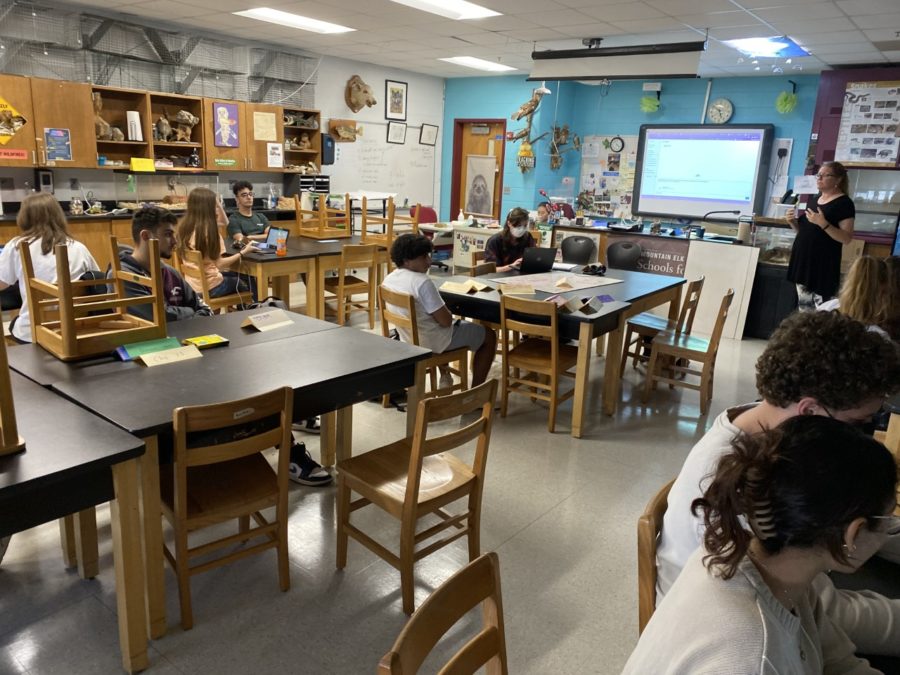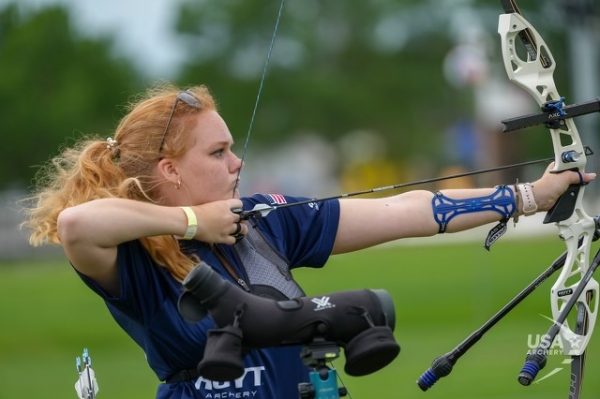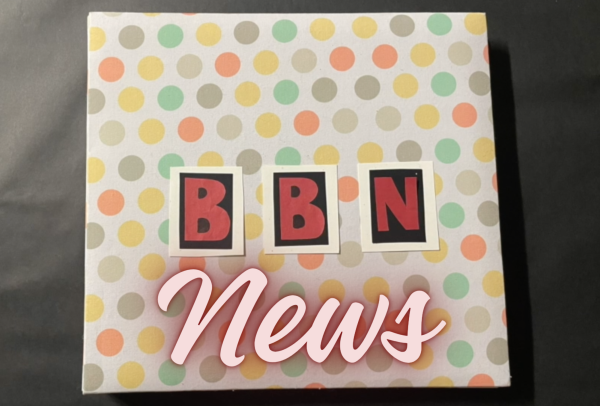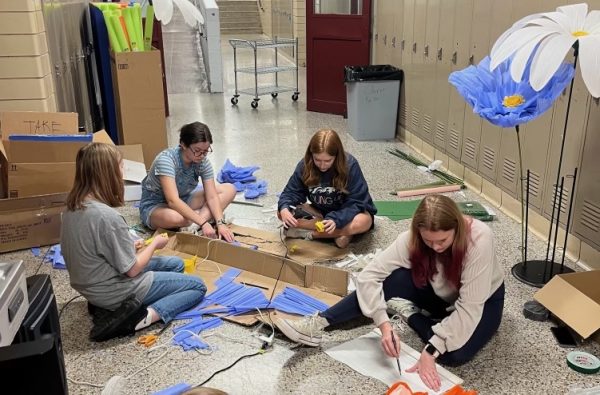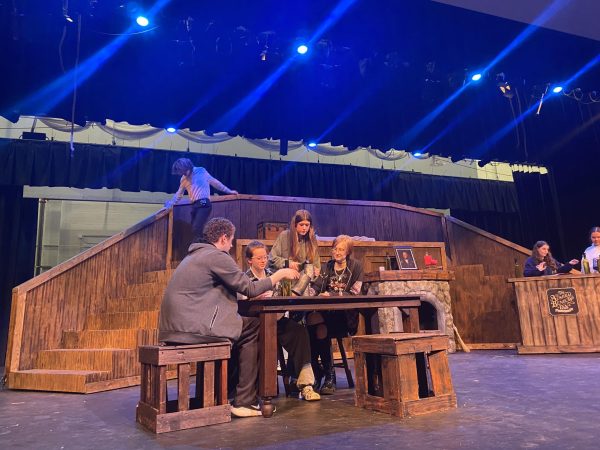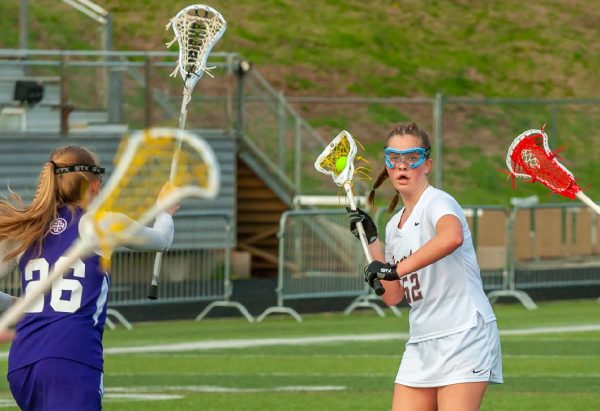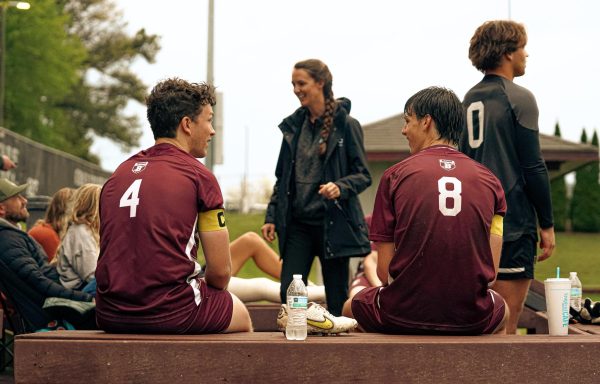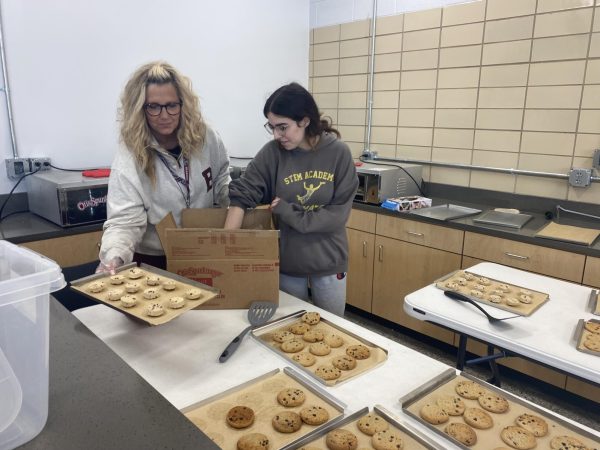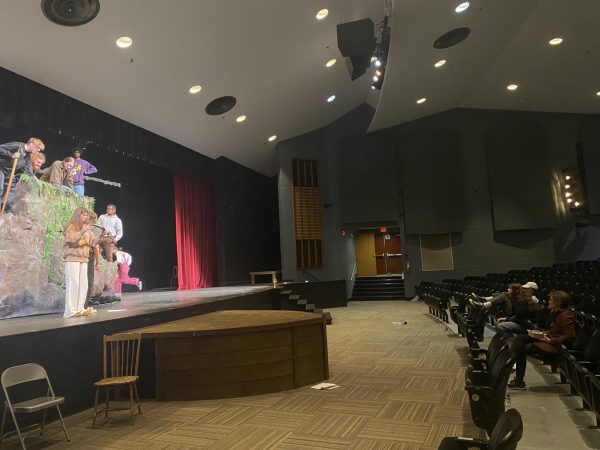Bearden students research correlation between mosquito behavior, climate change
Mrs. Tonya Henke works with her students on plans for their mosquito research.
Members of the Environmental Club and students in environmental science classes are currently researching the activity of mosquitoes around Bearden’s campus.
With the help of environmental science teachers Mrs. Tonya Henke and Mrs. Alicia Boris, club members and environmental science students are learning about climate change through mosquito reproduction.
“Mrs. Boris and I attended a mosquito workshop through the University of Tennessee, and it was a chance for students to join in and help the university to do some research and get students involved in university-level experiments,” Mrs. Henke said.
Mrs. Henke helped students fill cups with beef broth and lined them with strips of sticky paper. The mosquitoes are attracted to it and lay their eggs on the paper lining the cups. The mosquito eggs are then collected and counted under a microscope.
“Doing the hands-on types of experiments and then seeing how the spread of mosquitoes and the spread of diseases carried by mosquitoes can all come back to climate change, which is definitely one of the environmental topics we cover,” Mrs. Henke said.
Greater numbers of mosquito eggs are associated with hotter temperatures and can thus indicate a potential increase in the spread of diseases mosquitoes may carry.
“Going outside and doing [the mosquito project] and the processes that go into it like taking the paper [to look at it] for mosquito eggs and then getting the results back and seeing how they differ from each other is really cool to see,” said senior Lauren Wood, an Environmental Club member.
This year, however, club members will conduct this experiment for their own research purposes.
“Originally, it was a one-year project,” Mrs. Henke said. “We were in it with UT for two years and then this year it’s just us. UT needed large amounts of data, and the project grant that funded the project is [now] gone.”
Mrs. Boris also conducted the project and studied its results with her environmental science classes.
“Covid also made this a problem for us to collaborate with UT in 2020 [going forward],” she said.
Despite not collaborating with UT on the project this year, Mrs. Henke and the club still honor the tradition for the educational experience.
“The officers in the club that were part of the project during their freshman and sophomore years really enjoyed it,” Mrs. Henke said. “They found learning how to research at a college level really valuable.
“It’s a real-world, hands-on project. It’s teaching you that it’s not just learning about climate change, but also getting out there and seeing [the effects] with mosquitoes.”
